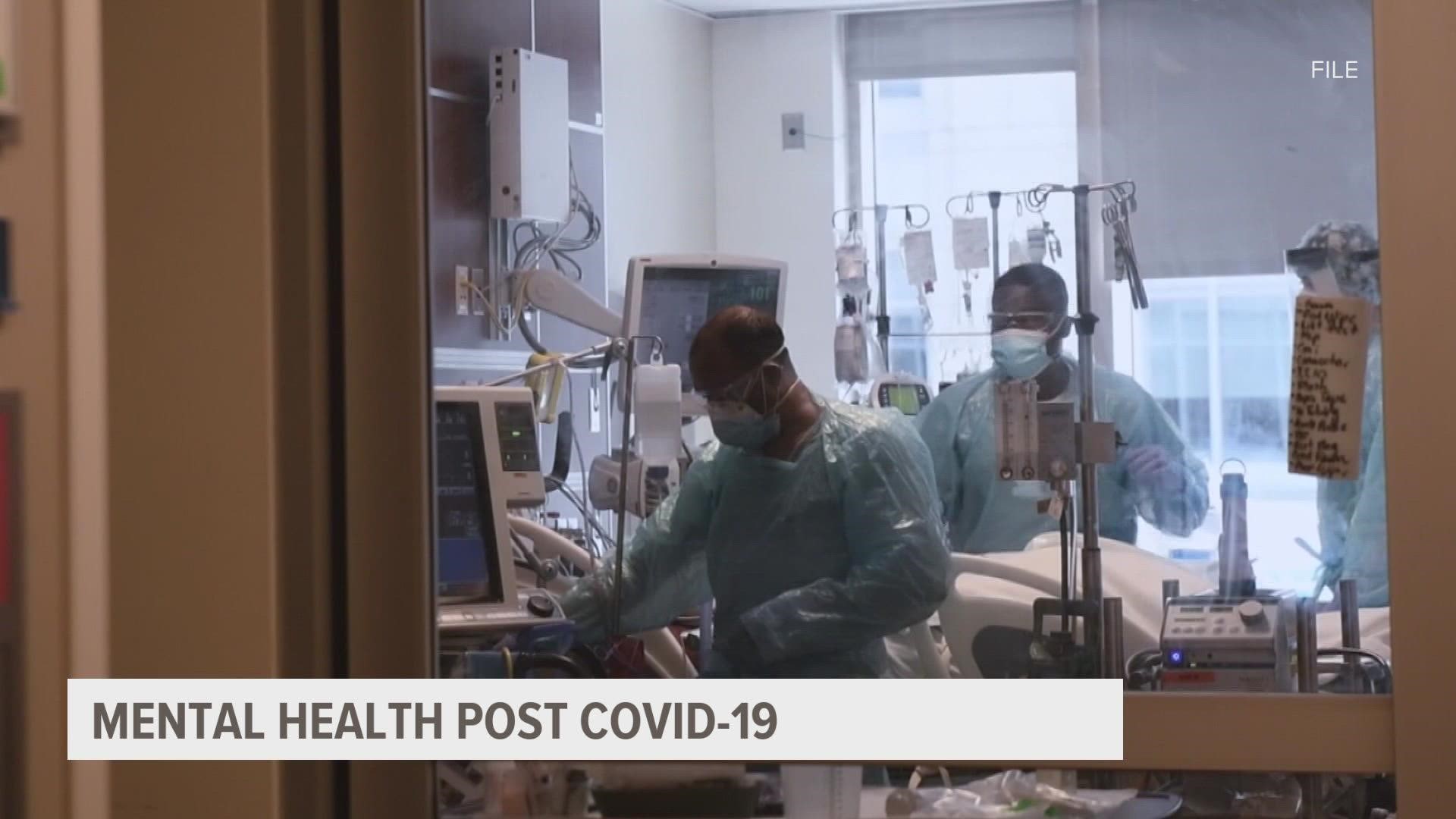DES MOINES, Iowa — Yesterday, Des Moines City Council member Indira Scheumaker released a statement in response to questions of her absence at past city council meetings.
She says the effects of COVID-19 has increased her struggle with clinical depression and anxiety.
Two years into the pandemic, Leslie Carpenter with Iowa Mental Health Advocacy says mental health help is still in high demand.
“We are seeing less access for people to get the mental health care that they need, at the same time as we're seeing more people needing it," Carpenter said.
Mental Health Professional and Clinical Manager of the Iowa House of Mercy Mollie Michelfelder echoes those comments and worries. She believes that there aren't enough accessible resources to go around.
“We know that overdoses are have increased, we know that suicides have increased, we've certainly seen an increase in both the need for mental health assessments and the need for substance abuse assessments,” Michelfelder said. “And the difficulty with that is that there are often long wait times to connect with those services.”
Being separated from connections due to social distancing is a large reason we're seeing an increase in need for mental help, according to experts.
“I believe a big factor in this is the isolation that has been part and parcel of the pandemic," Michelfelder said. "And isolation, we know, breeds mental illness itself and also substance abuse. What we also know is that connection is what heals us."
According to Carpenter, it's important to prioritize overall health as opposed to focusing on the physical or mental side of things.
"It's equally important because mental health is physical health, it is medical health," she said. "It is critical that we're thinking about taking care of ourselves in every single way."
Carpenter also says that grief is a large reason people are struggling after the pandemic — many of us know someone who lost their life to the virus.
Both Carpenter and Michelfelder say that being your own advocate and reaching out for help is the best thing you can do.

